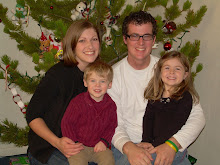James Joyce twisted the way I might otherwise read “The Dead” because of the title. From page one I am looking for the significance of death or dying in this seemingly simple story of an annual dinner party. And it isn’t until page 27 of this 50-page book that death in any form is even mentioned.
The topic comes about when the conversation at the dinner party turns to the monks in Mount Melleray. The monks are described as never speaking, waking at two in the morning, and they sleep in coffins. Now coffin is a pretty obvious allusion to death in and of itself, but Joyce doesn’t just throw it in haphazardly. In titling the book “The Dead,” Joyce has attuned our senses to the topic, and when coffins are mentioned, the clocks start turning and analytical thinking becomes hyper sensitive.
The coffin talk continues for less than half a page, but after the party guests have discussed the oddity of the coffin bed, the question is posed as to why the monks sleep in them.
The coffin, said Mary Jane, is to remind them of their last end. (27)
Now the connection between coffins and death has been made, and there is an awkwardness at the table. It isn’t spoken of again, and instead Joyce writes.
As the subject had grown lugubrious it was buried in a silence of the table during which Mrs Malins could be heard saying to her neighbor in an indistinct undertone:
-They are very good men, the monks, very pious men.(27)
That ends the monk talk, but the damage has been done. These people are hesitant, even fearful of talking about death. The dead hold some mystery that they won’t comprehend. It’s not that they are unable to uncover the dead, it’s that for some reason they worry what they will find. They therefore keep their conversation very light and on the surface of things in the present, never delving into serious topics (such as religion, which seems also to be a shady subject).
But this aversion to death described via the monks makes the realization Gabriel comes to at the end that much more poignant. Gabriel, the protagonist, sees his wife moved to tears by a song sung at the party. This excites him for he thinks it may have unlocked some long forgotten feelings of playfulness and carelessness. He anticipates a reversion to their younger years, and he anticipates sex.
Her change, however, is more melancholy than Gabrielle had imagined. Her mood involves the death of a teenage love; a young boy who sang the same song which was sung at the party, who braved inclement weather while very ill just to see Gabriel’s wife one last time. The boy died as a result. And through much turmoil, Gabriel’s jealousy and anger die down and he contemplates the profound effect this boy had on his wife.
So she had had that romance in her life: a man had died for her sake. It hardly pained him now to think how poor a part he, her husband, had played in her life. (48)
The realization comes that those who aren’t talking about the dead are those fearing the impact they will make when they die. But a small impact in death is a result of a small impact in life.
Better pass boldly into that other world, in the full glory of some passion, than fade and wither dismally with age. And realizing what his wife had with the young boy Generous tears filled Gabriel’s eyes. He had never felt like that himself towards any woman but he knew that such a feeling must be love. (49)
The dead had more impact on his wife than the living. And even earlier in the story there is talk of a long forgotten opera singer who has passed on. He is described as having the most pure tenor voice ever. This memory has more impact on the party guests who remember him than any living opera. The dead, apparently, evoke the kind of emotions that make life worth living.
As a side note to this story, the lack of quotation marks offers a seamless quality to the work. There are no pauses, and the writing flows into and out of Gabrielle’s mind freely and easily. Joyce also leaves out periods after prefixes: Mrs, Mr, etc. This has the same effect. There is nothing to halt the reader, but words flow on to other words.
Tuesday, July 21, 2009
Subscribe to:
Post Comments (Atom)

No comments:
Post a Comment